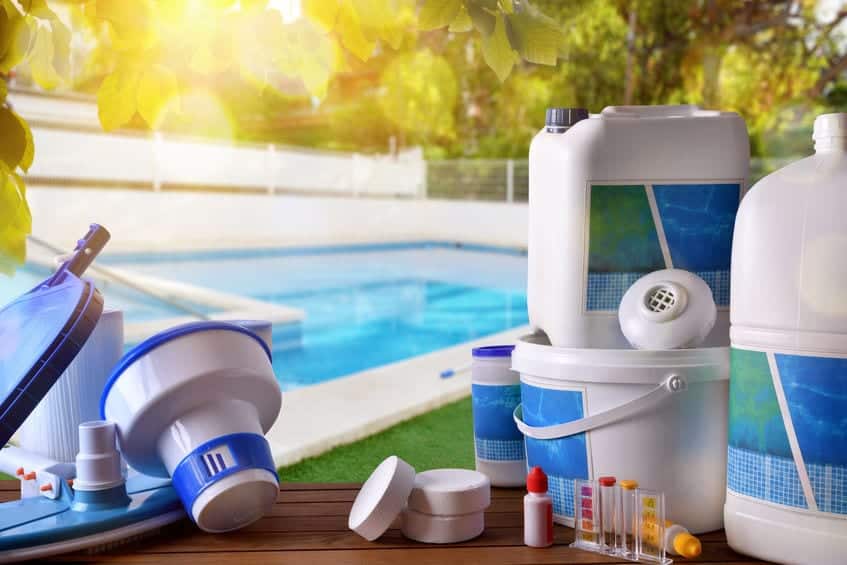How Do Florida Swimming Pool Accidents Happen?
Summer 2021 is here. As pandemic limitations lift, many of us are eager to gather with family and friends.
Swimming pools have long been the center of summer get-togethers. In Sarasota County, Florida, one realtor estimated that 40% of homes boast a pool.
Many neighborhoods and community centers in Florida also maintain community pools.
As much as swimming pools bring fun, they can also become sources of tragedy. Recently, a Florida hospital issued an alert after observing a 60% spike in drownings between March and April this year. They emphasized how children especially remain vulnerable, since their swimming ability may be undeveloped — or even totally absent.
Keep reading to learn the common causes of swimming and pool accidents in Florida. It might save you or a loved one from loss.
Common Pool Accidents in Florida
Drowning comes to mind as the obvious calamity to prevent, and it’s true that drowning causes the second-highest amount of unintentional, injury-related deaths for children between ages one and four. We all want to work to prevent these.
Have you considered accidents that don’t lead to death, though? Swimming pool accidents also account for a high number of traumas in young children.
Examples of such non-fatal injuries are:
- TBI (Traumatic Brain Injury)
- Disembowelment
- Evisceration
- Negative physical effects from prolonged submersion
You’ll want to exercise extra caution in the toddler years. Children who can move around on their own but who don’t understand pool/swimming skills are the target group to protect.
Control Pool Usage
The best way to keep children safe from water accidents is supervision.
If you swim at a public pool, watch the on-duty lifeguard. Are they attentive? Are they doing their job?
For home gatherings, ensure that children only swim when at least one mindful adult is present. Part of that means teaching kids to ask for permission before they swim.
It helps to have them swim in groups or with buddies, too. You can tell children the signs that mean it’s time to grab an adult: if a friend isn’t moving underwater, or if they’re having a hard time swimming.
When it’s not time to swim, restrict pool access from the young people in your household. Some folks accomplish this with a portable fence that’s easy to place around the perimeter.
You could also enlist attendees to help stretch a pool cover across the surface at the end of a gathering.
It’s tempting to just let it rest as a shining, aqua oasis in the backyard.
Unfortunately, it’s impossible to train children to prevent every incident. For example, no matter how many times you instruct them not to run around the pool, it’s easy for a child to forget, run, trip, and fall in — or even hit their head underwater.
You can also lock down the backyard entirely when you’re too busy to supervise kids. Use child-proof locks on sliding doors, gates, fences, and even windows.
Pools and Germs
We’ve covered physical injuries, but let’s remember that pools can also spread illness. After all, the water accumulates germs from anyone who enters the pool.
It may seem overly cautious, but if anyone has had diarrhea in the past few days, they should stay out of the water.
Again, children especially need to be watched. They may not be aware of when they’re sick or when they need to use the bathroom. It’s best to manage them with proactive restroom breaks and schedules.
For Crypto, a sickness caused by the bacteria Cryptosporidium, swimmers need to stay out of the water for two whole weeks. Cryptosporidium germs can survive in treated water for up to seven days.
Similarly, let things settle if you have a big meal before you swim. While disastrous consequences are something of an old wives’ tale, it does help to prevent stomach cramps — and it’s hard to sprint out of a pool if the urge to vomit seizes you.
One oft-neglected practice is to shower before entering the pool. The CDC found that rinsing your body with water for even one minute helps to remove a substantial degree of dirt and germs that would otherwise interact with chlorine.
Think of chlorine as a limited resource in the pool. If it has to spend its energy wiping dust particles from your body, it might not be available to fight the more dangerous germs.
Chemical Safety
This brings us to common chemicals used to sanitize pools: chlorine and bromine.
The CDC recommends using test strips at least twice a day in your pool. You’ll want to maintain the following levels:
- 1-10 parts per million (ppm) for free chlorine
- 3-8 ppm for bromine
- pH 7.2-7.8
It follows that, if your pool is being used a lot, you’ll want to check levels more often.
While these chemicals work well in small proportions to the water, they can be less effective or even harmful in the wrong amounts. Too little, and germs will run rampant in the water. Too much can cause irritation to swimmers’ eyes and skin.
You’ll also want to store these chemicals securely when not in use. Either would prove toxic if swallowed, and a young child might not know better.
Much of pool safety focuses on preventing accidents for youth, but keep in mind that any adult with physical or mental impairments might need the same care.
You’ll even want to monitor how much you drink on swimming days, since you might become the lifeguard in a pinch.
All of these potential dangers might bring up worries, but remember that most pool dangers can be avoided with a little common sense and responsibility.
About the Author:
Andrew Winston is a partner at the personal injury law firm of Winston Law. For over 20 years, he has successfully represented countless people in all kinds of personal injury cases, with a particular focus on child injury, legal malpractice, and premises liability. He has been recognized for excellence in the representation of injured clients by admission to the Million Dollar Advocates Forum, and named one of America’s Top 100 High-Stakes Litigators. Mr. Winston is AV Preeminent Rated by the Martindale-Hubbell Law Directory, enjoys a 10.0 rating by AVVO as a Top Personal Injury Attorney, has been selected as a Florida “SuperLawyer” from 2011-2020 – an honor reserved for the top 5% of lawyers in the state – was voted to Florida Trend’s ”Legal Elite,” recognized by Expertise as one of the 20 Best Fort Lauderdale personal injury attorneys, named one of the Top 100 Lawyers in the Miami area for 2015-2017, and one of the Top 100 Lawyers in Florida for 2015-2017 and 2019.
 You Can’t File Wrongful Death Claim for a Deceased Relative in Florida
You Can’t File Wrongful Death Claim for a Deceased Relative in Florida 


















